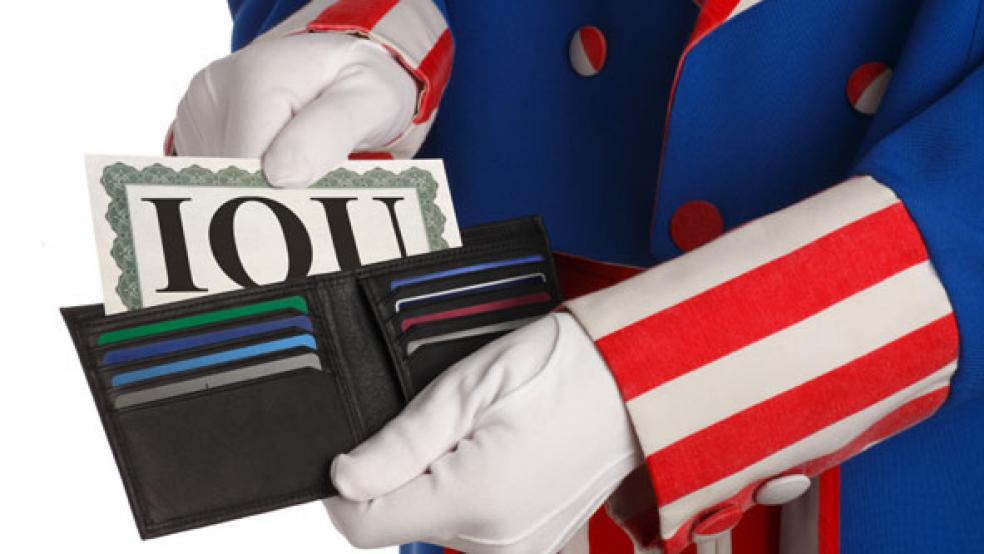Investors worried about the health of the global economy continued to scramble to the safety of U.S. bonds on Thursday, driving the yield on 30-year U.S. Treasury bonds below 2% for the first time ever on Thursday. The yield on benchmark 10-year Treasuries broke below 1.5%, reaching a three-year low.
Investors keep piling into U.S. bonds in part because they still offer positive yields, making them more appealing than debt from other safe havens where rates are negative.
Slate’s senior business and economics correspondent, Jordan Weissmann, writes that the drop in yields highlights two points. First, “[p]eople are clearly very worried about the direction of the world economy.” Second, he says:
“Washington could borrow a huge amount of money right now without having to worry much, if at all, about the consequences over the next few decades. As a rule, governments can sustain high levels of debt pretty much indefinitely as long as their interest payments are lower than the rate of economic growth. (I’m simplifying things, but bear with me.) … Trump wants a $1 trillion infrastructure plan? Fine. Now’s the time to debt-finance it. We can afford it, and it might help both the U.S. and the world economy avoid a downturn. This would also be a very good time to finance an expansive plan to combat climate change. Borrow a few trillion, throw it in a giant Green New Deal fund, and use it to pay for the sort of aggressive action necessary to eventually reach zero net emissions.”
Marc Goldwein, the head of policy at the Committee for a Responsible Federal Budget, agreed — not with adding more debt, but with extending the duration of government borrowing and locking in low rates for the longer term. “Refinancing may shake market confidence and wipe out some of the gains,” he tweeted. “But we issue or roll over tons of debt every week - I agree with you, I can’t think of a good reason all that debt shouldn’t be in 30 year bonds [at the moment].”
Weissmann’s piece echoes other calls this week for the U.S. government to take advantage of historically low borrowing costs to ramp up spending on investments that both Democrats and Republicans deem necessary, with infrastructure being the prime example. “With the U.S. government able to borrow at a near-record low 2.15% for 30 years, it sure would seem like an opportune time to address the 47,000 structurally deficient bridges across the country,” Bloomberg’s Brian Chappatta wrote Tuesday, before rates fell even further. “The bond markets aren’t demanding fiscal profligacy. All they’re suggesting is a modest loosening of the purse strings, with money directed toward projects that benefit the overall economy.”
In a recent analysis of the current economic environment, William Gale of the Brookings Institution said that while low interest rates are not a “get out of jail free” card as far as the country’s fiscal situation is concerned, more federal investment is warranted, even if it increases the deficit. "We need more infrastructure, research and development, and human capital … I conclude that it would be preferable – based on fiscal and economic growth considerations – to fund these projects with taxes rather than deficits. But, if given the choice between deficit-financed investments and no investments, policymakers should choose the former."
Neither an infrastructure plan nor a climate change fund is likely to happen anytime soon, though, as Weissmann readily acknowledges. But the failure to “borrow gobs of cash in order to fix the country, bolster the economy, and save the planet,” he argues, is “criminally negligent.”





